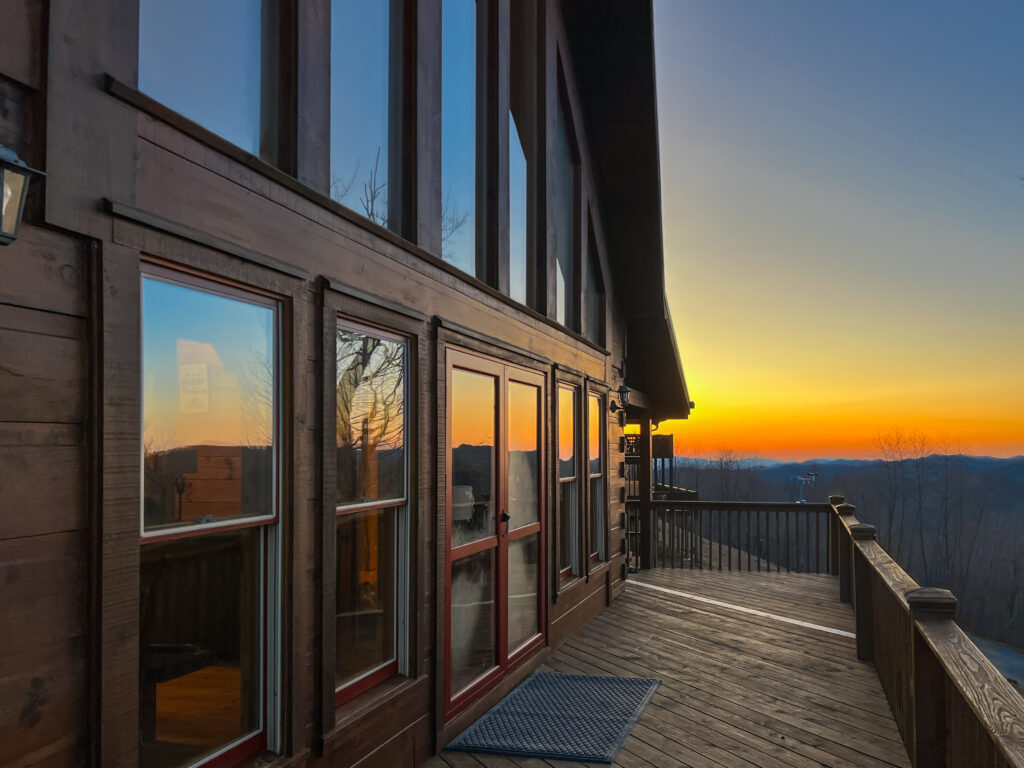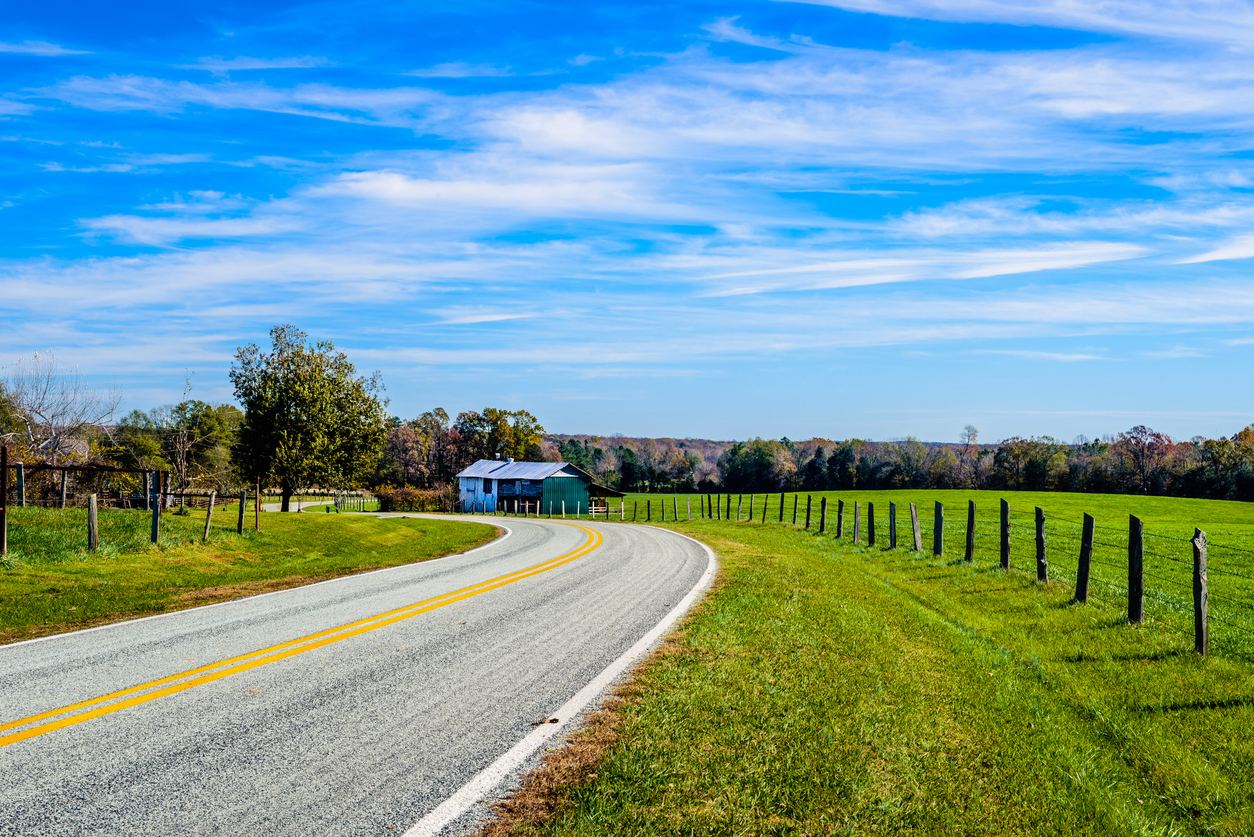
Are You Ready to Own an Airbnb?
If you are considering purchasing property in Western North Carolina to turn into an income-producing vacation rental home, there are many factors you need to consider to ensure success. The local tourism market; location and setting of each potential home; how you will handle management, marketing, and booking; how to ensure amazing guest experiences and the importance of reviews; as well as zoning, regulations, and occupancy taxes will all need to be taken into consideration. This is our guide to owning a vacation rental property in Western North Carolina.
Tourism Market Overview
Asheville has demonstrated remarkable resilience in 2025, emerging stronger than ever after the challenges posed by Hurricane Helene. The city has been recognized as a top travel destination, earning spots in both Forbes Travel Guide’s “12 Best Destinations for 2025” and The New York Times’ “52 Places to Go in 2025,” ranking 16th on the list.
This resurgence has positively impacted the vacation rental market. Short-term rentals have seen increased demand as travelers seek private accommodations, contributing to higher occupancy rates. This trend aligns with national patterns, where states are projected to consider approximately 328 bills related to short-term rentals in 2025, with an average of seven proposed and at least one passed in each state.

Tourism growth is not confined to the city alone. Western North Carolina is home to many quaint small towns that each cater to their own tourism submarkets, many of which have long been desirable second home and investment property locations. Examples include Waynesville and Maggie Valley in Haywood County; Hot Springs, Marshall, and Wolf Laurel in Madison County; Hendersonville and Henderson County; Brevard and Cedar Mountain in Transylvania County; Cherokee and Bryson City in Swain County; Sylva, Cullowhee, and Cashiers in Jackson County; and Highlands in Macon County. These may all be places you’ll want to investigate as a potential owner of a short-term rental, depending on your location preferences and lifestyle needs.
Tourism and occupancy data for each submarket and real estate listing should be analyzed to assess rental potential. This data can be obtained for both hotel occupancy and Airbnb occupancy numbers. This is an area in which we can give you plenty of data and real estate guidance.
After you’ve obtained a solid knowledge basis on the right area for your personal use and investment needs, what factors should you consider when evaluating individual properties?
Location & Setting
Location is the most important factor in determining the investment potential of a vacation rental property. In general, properties with easier access to towns, amenities, and things to do will see more rental demand. More rural properties with quieter settings also can be used as successful rentals, but cater to a smaller rental pool of visitors who prefer the solace of staying put in one place, typically for weekend or shorter stays.

The setting of a vacation rental is also important. If the property has a convenient location then guests tend to accept a wider variety of settings, many busier and less private (i.e. – a roadside motel). Private and pristine natural settings, many with views or water/creek access, offer a more relaxing setting for guests. A goal is to bridge both worlds for an ideal setting with convenient access. You’ll want to give consideration to who your target customers will be at any potential property, as this can vary greatly.
Management, Marketing, & Booking
There are two options regarding the management of a vacation rental: self manage or outsource to a vacation rental management company. For self-managed rentals it’s up to the owner to advertise the property, handle bookings, respond to guest inquiries, manage check ins and check outs, coordinate housekeeping, and respond to any maintenance needs or questions from guests during their stay. Any Airbnb owner will tell you to expect texts and calls from guests asking a multitude of questions, from “where’s the plunger?” to “the power’s out!”

Management companies charge a percentage of the gross booking amount, offering value to owners by coordinating everything mentioned above, thus providing a more hands-off experience. Management companies also typically use established marketing avenues that drive higher occupancy rates for their properties. Each side has its benefits and drawbacks; it’s important to assess the pros and cons of each to determine what is best for your needs.
Also, how will people find your rental? How well is it presented to attract potential guests? It’s no secret – just like in real estate sales, properties that are marketed correctly stand out and get more bookings. Excellent photographs and descriptions are essential. Guests can view a vacation rental property through many outlets, including Airbnb, VRBO, HomeAway, other online sites, and even your local TDA or Chamber of Commerce. Casting the widest marketing net will help drive more bookings.
Guest Experience & Reviews
The experience offered to guests plays a huge role in the overall performance of a vacation rental. Owners should take care to ensure the furnishings are nicely kept and arranged, the beds are comfortable, linens and towels are clean, the kitchen is well stocked with appliances and utensils, the space is odor free and clean, and more. There are some dingy Airbnbs out there! It’s apparent when an owner or management company truly cares about their property and the experience offered to guests.
Reviews are a very important consideration for guests as they book a vacation rental. If guests have a poor experience it will be apparent in the reviews and future bookings will be affected. Conversely, properties that are well managed and maintained carry more positive reviews and attract more future bookings, so be sure your guests are having an excellent experience. Positive reviews beget more success for a vacation rental.

Zoning / Regulations / Occupancy Taxes
A thorough investigation of the zoning and regulations is of utmost importance for any potential vacation rental. Are there any zoning restrictions from the City, County, or your HOA for short-term rentals that the property is subject to? What health, safety, and building codes is the property subject to? Owners must also take into account state and local occupancy taxes for their vacation rental property. Typically these taxes are paid by guests in addition to the nightly rate, similar to what’s seen when you book a hotel room.
In response to the growing short-term rental market, local governments are revisiting regulations to balance tourism growth with community well-being. In Buncombe County, which encompasses Asheville, proposed regulations aim to limit new short-term rentals to commercial districts and impose size restrictions on rental properties. These measures seek to mitigate the impact on housing availability and address community concerns.
It’s important to note that regulations can vary significantly between municipalities and are subject to change. Staying informed about local laws and obtaining the necessary permits is crucial for compliance and successful operation of vacation rentals.
We are finding great success for both our buyer and seller clients, and can add significant value for your search to purchase a property to turn into an income-producing vacation rental home. Please reach out and we’ll be happy to chat about some ideas to help you get started.
Collin O’Berry
Managing Broker, Altamont Property Group
Email: altamontpropertygroup@gmail.com
Call: 828-782-5582

